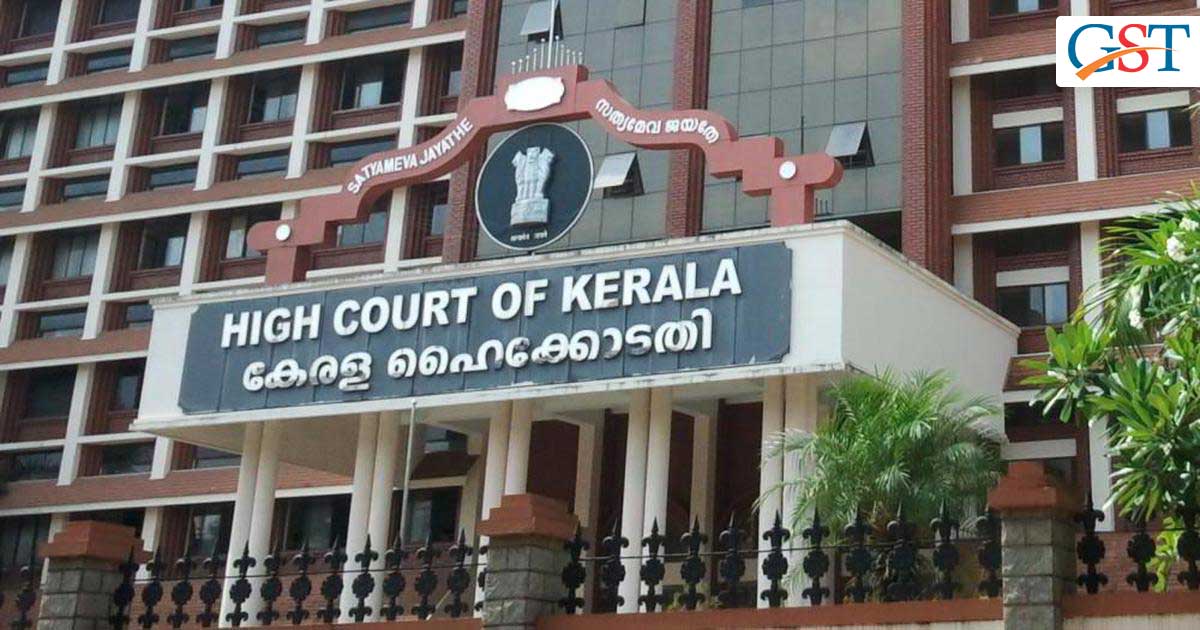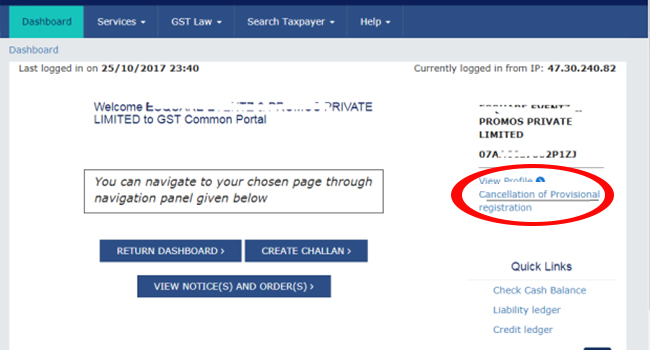
Kerela High Court recently gave a verdict permitting the tax officials to cancel the GST registration of the taxpayers who are guilty of not filing the returns for six back to back months. In the hearing, the petitioner defaulted filing the returns from May 20 onwards. The petitioner is a taxpayer that failed to file the returns since May 20 for which financial crises is being held responsible.
Countering the appeal of the petitioner, the fourth respondent issued Ext.P-1 proposing to cancel the GST registration 
The primary dispute here was for the petitioner is to the effect that though the 4th respondent found that as on the date of Ext.P-1 notice dated 13.11.2019 there were six months continuous default on the part of the petitioner, that indeed there were only 5 months continuous default and not the mandatory six months continuous default in filing the returns as envisaged in Sec. 29(2)(c) of the CGST Act.
So here the challenging order Ext.P-3 is illegal and therefore is forbidden by the Court. Moreover, the said challenging order Ext P-3 demanding cancellation of petitioner’s GST registration 
The appeal was heard by judge Justice Alexander Thomas and concluding the case he delivered the order based on a writ petition filed by M/S.PHOENIX RUBBERS.
Any concerned officer might cancel the registration of the taxpayer from that date onwards or any retrospective date, as he may deem fit, where,–
- He (taxpayer) has violated provisions of the Act or the rules made there under as may be prescribed; or
- He is paying tax under Section 10 and has not submitted the returns for three back to back tax periods; or
- Any registered individual (excluding the person determined by Clause (b)) found guilty of not furnishing returns for consecutive six months; or
- An individual who has voluntarily taken up the registration under sub-section (3) of Section 25 and has not started any business (within six months) starting from the date of registration; or
- Registration is acquired through unfair means by the assessee, any intentional misstatement or hiding of facts.
Here the proper officer is empowered to cancel the registration if any of the aforesaid conditions are witnessed but the cancellation remains on hold until the taxpayer (suspect) is heard in the court. The taxpayer here is granted an opportunity of being heard in court.
Read Also: Kerala High Court Frees Goods & Vehicles Based on Bond: GST 
The single bench observed that under section 29(2)(c) of the CGST Act, officials are empowered to cancel the GST registration of the defaulting taxpayers who have not filed the returns for the last six months. However, the officer is firstly bound to issue a notice in the nature of Ext-P-1 before issuing the final order. Needless to say, the accusation completely depends on the taxpayer’s inability to file the returns for consecutive 6 months (completed at the time of issuance of notice).
The HC further declared that there will be a citation of powers u/s Sec. 29(2)(c) of the CGST Act and the petitioner is liable for cancellation of GST registration after the issuance of Ext P-3 (raised after the continuous default in filing the returns for 6 consecutive months). The proper officer concerned with the case has complete authority to take the action is-line with the laws mentioned only after the availability of complete documents required by the justice to make a fair decision.